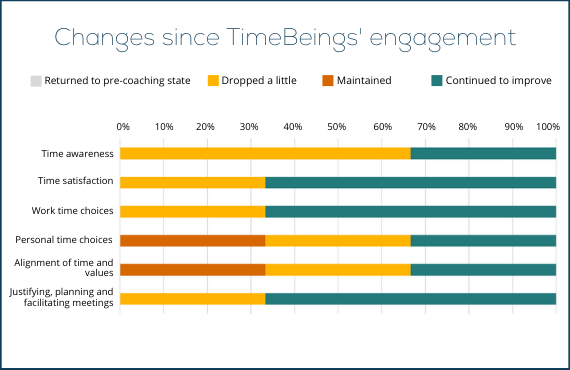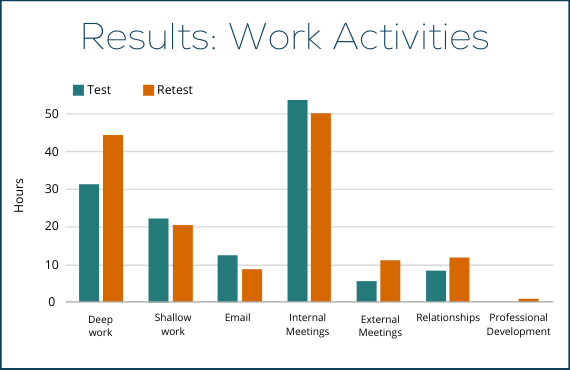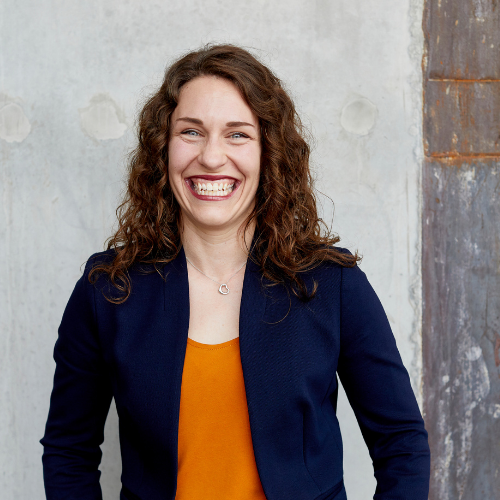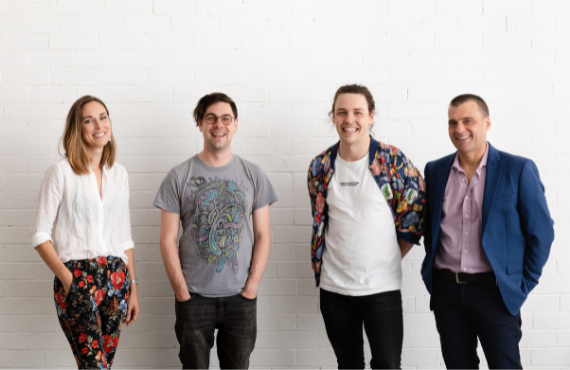Longer term benefits
While the Matrak team were confident the changes would stick, it was worth checking. So, three months after TimeBeings’ engagement (December 2021), the I asked participants to reflected on how their attitudes and approaches to time had changed since we spoke last.

Their results showed that overall, the behaviour changes established through their time coaching had either been maintained or continued to improve after the program’s end.
“Really surprised how long lasting the changes were! I still have around 2 full days per week of ‘deep focus’ time, which is a radical shift compared to before the coaching. The team are implementing further improvements for the start of next year, to help more of the team gain these types of benefits. Thanks so much!
Shane Hodgkins, Co-founder and CEO
All participants said they’d like to work with TimeBeings at least annually to continue working towards their time goals.
And that’s great news, because priorities, needs and circumstances change. TimeBeings is about long-term partnerships that support start-up professionals to own their time.
Background
Overview
Who: Three executives at construction-tech start-up Matrak Industries
When: March – August 2021
Why: Seeking to increase productivity while supporting work/life balance and job satisfaction.
How: Research has well-established the associations between productivity, work-life balance and job satisfaction (for example, see here, here and here). Combining research and participants’ data sets, TimeBeings delivered highly-targeted coaching to Matrak executives to enable behaviour change that lasts.
The need
At the start of the engagement, all participants indicated they were dissatisfied with how they were spending their time. This was measured through survey responses as well as through quantitative goal setting.
The Matrak team’s time awareness also needed improvement, with their estimates of time spent on an activity varying from actuals by an average of 49%. Each team member had at least one inaccuracy greater than 120%. This is important because research shows even small cognitive time distortions can reduce individual productivity.
The team’s priority challenge was to reduce time spent in internal meetings. Here, the data backed up the stories told, with 41% of their work time in internal meetings (51 hours in total). The team’s aim was to exchange some of this time for deep, focused work.
In the personal domain, each participant had set an individual goal to spend more time on themselves (on hobbies, self-care or self-development).
“Ultimately, everything comes down to how you spend your time. The quality of your relationships, your satisfaction at work, your physical health… TimeBeings calls you out. By putting hard numbers on your goals, expectations and reality, you can immediately see areas to improve your life, based on what’s important to you.”
Brett Hodgkins, Co-founder and CTO
The Results
By the end of their first cycle with TimeBeings, the three team members all reported improved time satisfaction and time awareness. They also saw improvements in each other’s time choices.
The quantitative results backed up their observations. The team added over 13 additional hours of deep work to their week, while reducing time in meetings. In the personal domain, each participant added more than 10 hours of ‘me time’.

Notes on context: In lockdown conditions, we expect overall work hours to increase, and time in meetings to reduce. The team’s results for these metrics were in line with expectations, taking the changing lockdown context into account.

TimeBeings helps start-ups smash their goals sustainably. Data-driven, research-backed, guaranteed.

Book a discovery call to chat with Jenna about your vision of time well spent.

